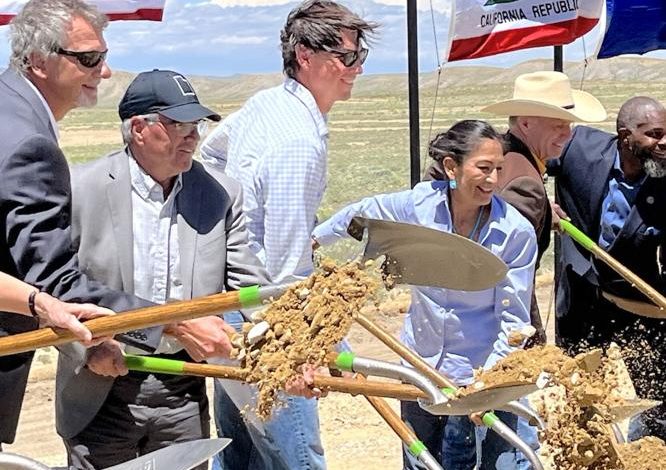Wyoming Coal Industry Holds “Cautiously Optimistic” Outlook Amid Challenges and Trump Administration Changes

As the coal industry in Wyoming continues to navigate a series of challenges, including market pressures and regulatory hurdles, there is cautious optimism among coal advocates regarding the potential impact of a second term for former President Donald Trump, Wyoming Tribune Eagle reports.
While the industry’s struggles during Trump’s first term were notable, some believe that his administration could offer more favorable policies for coal in the coming years, particularly in light of the Biden administration’s “hostile” approach to fossil fuels.
Frank Maisano, an energy policy analyst with the Washington D.C.-based firm Bracewell, acknowledged that coal is facing significant challenges, but noted that the Trump administration would likely offer more support for the industry compared to the current administration.
“You can’t sugarcoat it: Coal is facing some significant challenges,” Maisano told WyoFile.
He added that coal proponents are likely to find a more sympathetic ally in Trump’s administration.
Under the Biden administration, the coal industry has faced regulatory pressures, including the US Environmental Protection Agency’s (EPA) rules requiring coal-fired power plants to cut 90% of carbon dioxide emissions by 2032. Additionally, the Bureau of Land Management (BLM) has imposed a ban on federal coal leasing in the Powder River Basin. Wyoming Governor Mark Gordon has been an outspoken critic of these policies, filing lawsuits to overturn the coal leasing ban and other measures that he argues harm the state’s coal industry.
While some of these policies are still being contested in the courts, Maisano described the Biden administration’s actions as an attempt to target an industry already struggling.
“The previous administration’s focus was a whole-of-government approach on climate change,” Maisano said. “This administration’s whole-of-government approach is energy dominance.”
He referred to the Trump administration’s emphasis on increasing energy production, including coal.
Governor Gordon has also expressed optimism about Trump’s potential second term, particularly with the nomination of North Dakota Governor Doug Burgum to lead the Department of the Interior. As nearly 70% of Wyoming’s mineral resources are federally managed, the Secretary of the Interior plays a critical role in the state’s energy sector. Gordon has praised Burgum’s nomination, calling it beneficial for Wyoming’s economic future.
However, the path to reversing Biden-era regulations remains uncertain and slow, with much of the coal industry’s fate still dependent on market forces. Mark Squillace, a law professor at the University of Colorado, explained that while litigation could challenge these policies, the process could take years. A faster alternative would be for Congress to repeal the rules via the Congressional Review Act, but even with a slight Republican majority, this route is not guaranteed.
Despite these hurdles, coal proponents in Wyoming remain cautiously optimistic. Travis Deti, executive director of the Wyoming Mining Association, acknowledged that while a complete turnaround is unlikely, there is hope for a more coal-friendly federal approach. Deti expressed hope that the new administration might open new coal export opportunities, such as coal ports, and push forward with delayed coal lease expansions in Wyoming.
At the local level, Gillette, the epicenter of the Powder River Basin coal industry, is watching closely. Mayor Shay Lundvall emphasized that Wyoming’s congressional delegation would play a key role in advocating for coal interests in Washington, D.C. Local leaders are hopeful that the state’s representatives will push for meaningful changes that could help preserve coal jobs and the industry’s future.
Additionally, some market indicators suggest that coal could see increased demand in the coming years. Electrical grid managers are increasingly concerned about power reliability, and there is growing global demand for electricity driven by technology and data centers, which may help slow the pace of coal plant retirements.








